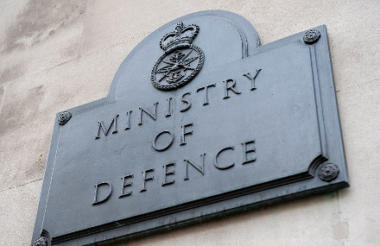The Ministry of Defence has announced ten charities who are to receive £22.7m of Libor funding.
The ten charities will received the money from the Aged Veterans Fund, which was set up in 2015 with a total of £30m of Libor funding available to support older veterans. This is the final round of funding from this fund, with £6.6m initially granted to eight organisations in 2016.
The ten charities to receive the awards are Age UK, Poppyscotland, The Royal British Legion, the British Nuclear Test Veterans Association, Cornwall Rural Community Charity, Rural Action Yorkshire, St Johns and Red Cross Defence Medical Welfare Service, Age Cymru, Seafarers UK, and Hospice UK.
Poppyscotland, which is a member of the Royal British Legion group of charities, has received £4m to run its 14 projects under its Unforgotten Forces programme, which "provides wellbeing improvements to homes, helps to prevent veterans from feeling isolated, and support to those who suffer hearing problems".
Age UK received £4.4m for its Joining Forces scheme, which "gives up to 12 weeks of tailored support for older veterans across the country, providing information and advice, practical support at home, access to social events and digital technology, and opportunities to become more active".
While £4.8m was awarded to the Legion Healthy Living Portfolio, led by The Royal British Legion, to promote healthy living.
Defence Minister Mark Lancaster said: “Our veterans have given so much for their country, and the Aged Veterans Fund is a way of us thanking our older veterans and ensuring they are cared for in later life.”
Steve Baynes, head of grants and social policy at The Royal British Legion, said: “This grant will help the Legion continue its work with a network of charities, supporting the Armed Forces community through thick and thin. In particular, the grant will enable us and our partners to focus on achieving lasting social change for aged veterans.
“The veterans to benefit will be from a range of communities, including those who are at risk of becoming socially isolated, struggling with their physical or mental health, with hearing loss or in residential care. Many of the projects will also benefit carers and family members of those who Served, and some are research-oriented so that we, as a society, are better informed of current and emerging needs.”
Related articles












